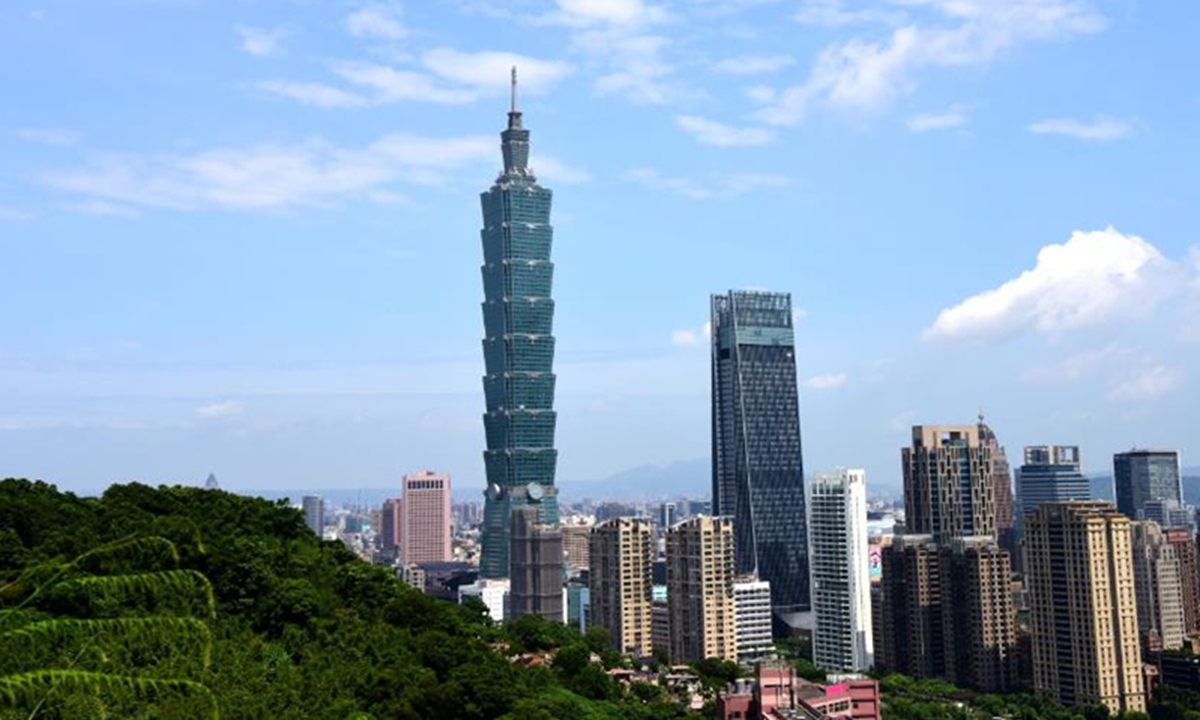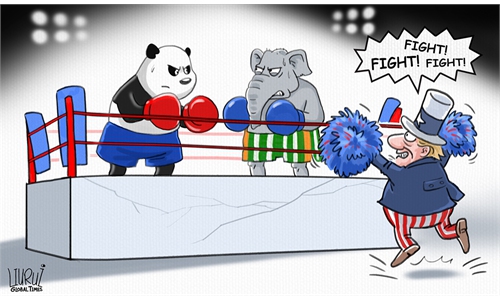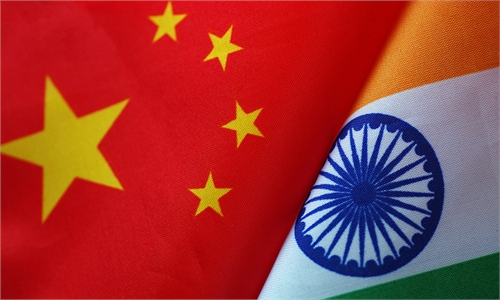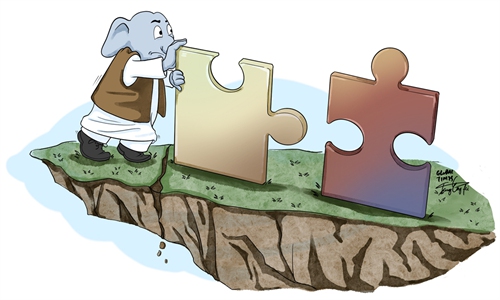
The Taipei 101 skyscraper in Taipei, southeast China's Taiwan. Photo: Xinhua
Indian scholar Brahma Chellaney, who has long been an anti-China propagandist, has talked wildly again by providing arrogant advice that even most US scholars would think twice before saying it - calling on Washington to make it "crystal clear" that it would "mobilize its own military resources to defend Taiwan."In an opinion piece of Project Syndicate on Monday, Chellaney urges the US to make a credible commitment to defend the island of Taiwan militarily or it may be a "mortal blow to America's global preeminence."
As an Indian, Chellaney is giving ill-intentioned advice to the US, urging the US to threaten to go to war. Although many countries have paid lip service on the Taiwan question, they tend to avoid officially pledging defending Taiwan militarily, including the US. By inciting Washington, Chellaney wants India to profit from escalating China-US tensions over the Taiwan question.
The gap in strength between the two sides of the Taiwan Straits has clearly tilted in favor of the mainland. The mainland holds the initiative to resolve the Taiwan question. The mainland has formed an absolute military advantage over Taiwan. If the US military participates in the war, it must face the consequences.
This makes anti-China figures such as Chellaney anxious. Facing such a situation, Chellaney can only instigate the US: "If the United States cannot (or will not) prevent Taiwan's subjugation, why should anyone else count on US protection?"
But Chellaney will only be disappointed: Despite the proactive moves and even disclosing "a US special-operations unit and a contingent of Marines have been secretly operating in Taiwan to train military forces there," the US would still refrain from making clear its threat to go to war. In fact, Washington has been avoiding making such clear statements as it cannot afford the consequences.
"On whether Washington should militarily defend Taiwan, there is no consensus inside the US - because it means sending American soldiers to the forefront and investing huge resources. The US may invest even more than it did in Afghanistan. Washington is not prepared to fight a large-scale war with Beijing, and believes that it does not necessarily have a chance to win," Zhang Tengjun, deputy director of the Department for Asia-Pacific Studies at the China Institute of International Studies, told the Global Times.
Chellaney also declared in the article: "But if some resolution can be found that reduces tensions in the Himalayas, it would free up Chinese capabilities to deal with the fallout of any Taiwan-related operation."
These words expose the naive ideas of some Indian anti-China hawks who want to use the China-India border issue to tie up China on the Taiwan question. The position of Chellaney and his like is full of opportunism, trying to use the Taiwan question, China-US relations and other issues to provide India with a strategic bargaining chip. However, they should understand that China will never waiver when it comes to safeguarding its territorial sovereignty.
Other countries' provocative moves on the Taiwan question will only strengthen the Chinese mainland's resolve to realize reunification, and will only make the critical moment come earlier. These countries also know that if they make it "crystal clear" to militarily defend Taiwan, they will be risking their soldiers' own lives.
Chellaney has made hollow calls in the article, but he forgot to mention the severe consequences Washington will face by militarily involving in the Taiwan question. Chellaney tries to add fuel to the fire on the Taiwan question, but it is very unlikely for him to stir up muddy waters.



